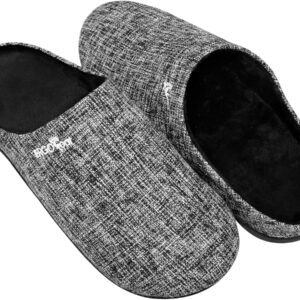Donating unwanted furniture is a fantastic way to declutter your home and support a worthy cause. Many people wonder, “Does Goodwill pick up furniture?” The answer, while generally no, is more nuanced than a simple yes or no. As explained on giaithichtengoi.com, understanding the specifics of Goodwill’s donation process is crucial for a smooth and successful experience. This comprehensive guide will explore the intricacies of Goodwill’s furniture donation policy, covering various aspects to help you determine the best course of action for your unwanted furniture.
Understanding Goodwill’s Donation Process
Goodwill, a non-profit organization, relies heavily on donations to fund its various programs aimed at job training and community development. While they happily accept a wide range of donated items, their approach to furniture pickup varies significantly depending on location and the volume of items. Unlike some charities, Goodwill doesn’t typically offer a dedicated furniture pickup service for individual donors. This is primarily due to logistical challenges, including the size and weight of furniture, the need for specialized vehicles, and the potential strain on their already limited resources.
Why Goodwill Doesn’t Typically Offer Furniture Pickup
- Logistical Constraints: Picking up large and bulky furniture requires specialized trucks and trained personnel. Coordinating these resources for individual pickups can be costly and inefficient.
- Storage and Handling: Furniture requires careful handling and appropriate storage until it can be processed and sold in Goodwill stores. Individual pickups add complexity to this process.
- Safety Concerns: Moving large, heavy furniture poses safety risks to both donors and Goodwill staff. Proper training and equipment are essential to mitigate these risks, making individual pickups challenging to manage safely.
- Resource Allocation: Goodwill prioritizes its core mission of job creation and community support. Redirecting resources towards individual furniture pickups might detract from these crucial activities.
- Donation Volume: The sheer volume of donations Goodwill receives necessitates a streamlined process. Individual pickups would significantly disrupt their efficient donation handling system.
Alternative Options for Donating Your Furniture
While Goodwill might not offer direct pickup, several alternatives exist for donating your unwanted furniture:
- Drop-off at Goodwill Stores: The most common and often easiest method is to transport your furniture to a nearby Goodwill store during their operating hours. This allows for flexibility and convenience for donors while also ensuring efficient processing by Goodwill staff.
- Other Charities and Non-Profits: Many other charities and non-profits accept furniture donations and might offer pickup services, particularly for larger items or significant quantities. Research local organizations to find suitable options.
- Furniture Banks: Furniture banks specialize in collecting and distributing used furniture to individuals and families in need. They often offer pickup services, making it a convenient option for donors.
- Online Marketplaces: Platforms like Craigslist, Facebook Marketplace, and OfferUp allow you to sell your furniture, potentially recovering some of its value while simultaneously reducing waste.
- Curbside Donation: Leaving your furniture curbside with a clearly visible “Free” sign can attract individuals seeking free items, reducing landfill waste and benefiting others. However, ensure compliance with local regulations to avoid penalties.
Factors Influencing Goodwill’s Decision on Furniture Pickup
Although a general policy exists, some factors might influence Goodwill’s willingness to pick up furniture in specific circumstances:
- Volume of Items: For larger donations involving multiple pieces of furniture, Goodwill might consider a pickup, especially if the items are in high demand and of good quality. Contacting them directly to inquire about this possibility is crucial.
- Location: Goodwill’s willingness to accommodate pickups might depend on geographic location. Areas with higher donation volumes might be less likely to offer individual pickups compared to regions with fewer donations.
- Type of Furniture: The condition and type of furniture play a role. High-value, well-maintained pieces might be more likely to warrant a pickup request.
- Relationship with Goodwill: Organizations or businesses making large, regular donations might have a stronger relationship with Goodwill and therefore be more likely to negotiate pickup arrangements.
Preparing Your Furniture for Donation
Regardless of whether you are dropping off or arranging a pickup, proper preparation of your furniture is crucial:
- Cleanliness: Thoroughly clean your furniture to remove dust, dirt, and any stains. This enhances its appeal and increases the likelihood of it being accepted and sold.
- Repair Minor Damages: Fixing minor damages, such as loose screws or small tears, can significantly improve the furniture’s condition and value.
- Disassemble if Necessary: If possible, disassemble larger pieces of furniture to make transport and handling easier. If you are unsure, contact Goodwill for guidance.
- Proper Packaging: Wrap fragile parts or items in protective materials like bubble wrap or blankets to prevent damage during transit.
- Check for Pests: Inspect your furniture thoroughly to ensure there are no signs of pests or infestations before donation.
Contacting Goodwill Directly
The best way to determine whether Goodwill in your area might consider a furniture pickup is to contact your local Goodwill store directly. Their contact information is usually available on their website. Explain your situation, providing details about the type and quantity of furniture, and inquire about the possibility of pickup. Be prepared for a potential “no,” but a polite and informed inquiry is always worth making.
Alternatives to Donation: Recycling and Disposal
If donation isn’t feasible, consider these alternative options:
- Recycling Centers: Many recycling centers accept specific types of furniture materials, such as wood or metal. Check with your local recycling center to determine what materials they accept and their procedures.
- Junk Removal Services: Junk removal services offer convenient and efficient disposal options for unwanted furniture, but they come at a cost. Compare prices and services from different providers to find the most suitable option.
- Landfill Disposal: As a last resort, you may need to dispose of your furniture in a landfill. Be aware of local regulations and disposal fees.
Conclusion: A Strategic Approach to Furniture Disposal
While Goodwill doesn’t routinely provide furniture pickup, understanding their donation process and exploring alternative options ensures responsible and efficient disposal of unwanted furniture. By carefully considering your options and contacting your local Goodwill store directly, you can find the most suitable solution that aligns with your needs and supports charitable causes.





